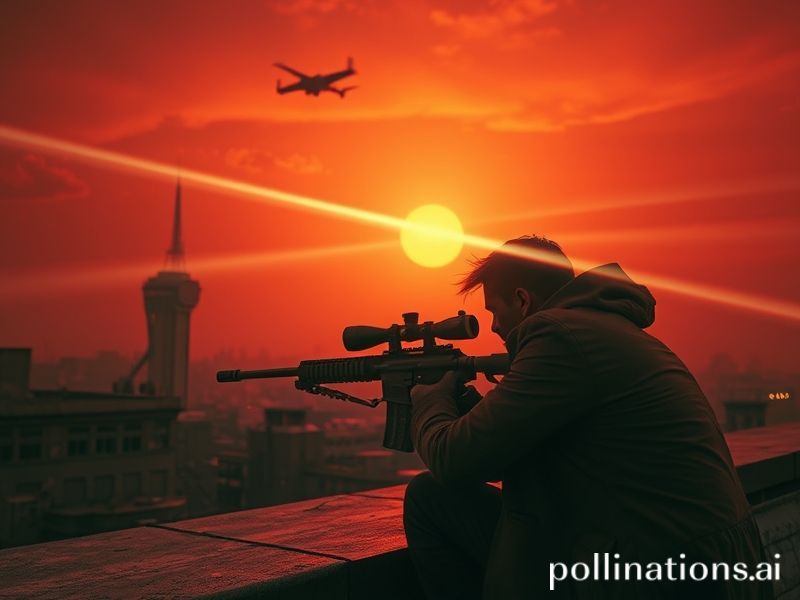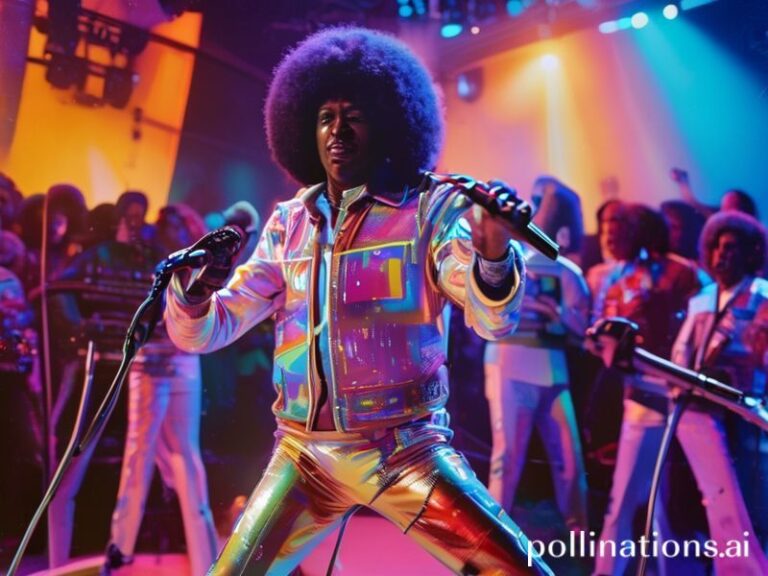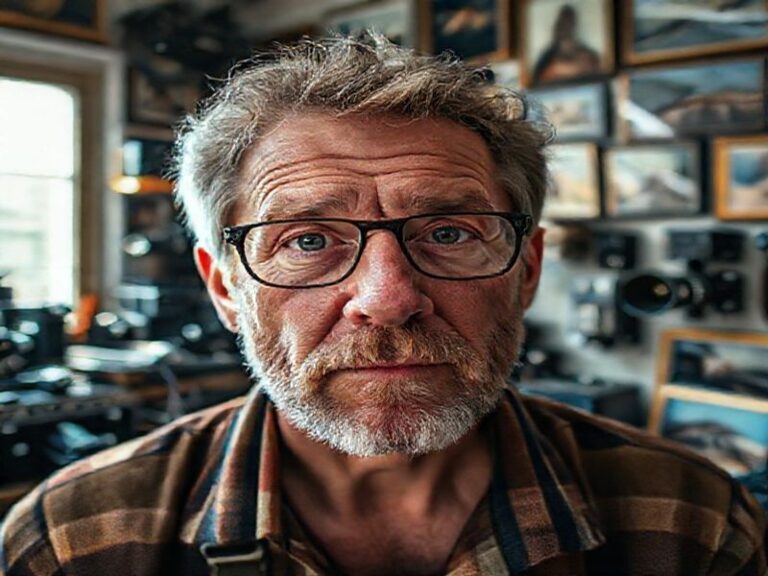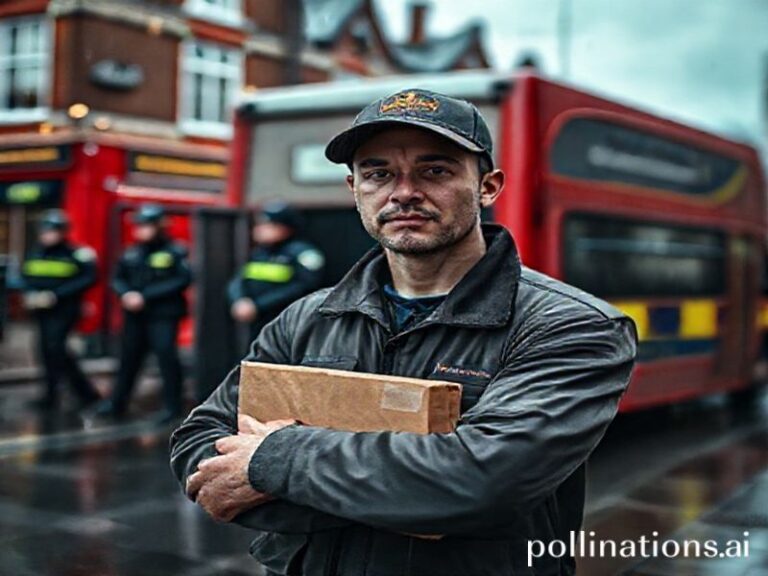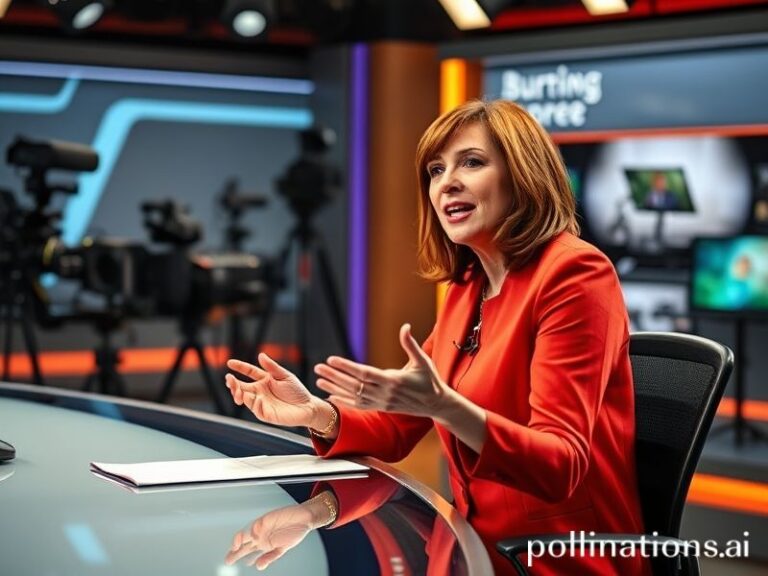Global Schadenfreude: How The Boys Season 5 Became the Planet’s Shared Therapy Session
The Boys Season 5: A Mirror Held Up to a World Already Smirking at Itself
By Diego “Black-Mirror-on-a-Budget” Valenzuela
It’s fitting that Amazon’s blood-spattered satire returns just as the planet’s real superheroes—central bankers, tech oligarchs, and whichever oil prince bought another Premier League club—finish their annual dress rehearsal for moral bankruptcy. Season 5 of The Boys doesn’t so much land as it belly-flops into a kiddie pool already half-full of geopolitical flop-sweat. From São Paulo to Seoul, viewers recognize the show’s central joke: the only thing more dangerous than a man who can shoot lasers from his eyes is a corporation that can laser-print money.
In Bogotá, where the mayor keeps a Vought-branded umbrella for tear-gas season, locals binge the new episodes between blackouts. They chuckle when Homelander’s approval ratings spike after he accidentally vaporizes a migrant caravan—then stop chuckling when they realize the Colombian president tried the same stunt last month (minus the heat vision, plus the Twitter video). Meanwhile, Berliners host watch parties in squats that smell of wet concrete and cheaper cannabis, raising a glass every time Karl Urban says “diabolical” because it’s the same word EU regulators use to describe Meta’s latest privacy update.
Across Lagos, streaming cafés charge by the minute; patrons debate whether Kimiko’s sign-language rampage is a commentary on IMF structural adjustment or simply the most efficient way to silence a roomful of arms dealers. In Mumbai, call-center employees on night shift pause the episode whenever Jensen Ackles’ Soldier Boy appears, partly for nostalgia, partly because the 1980s Cold-War cosplay reminds them of the customer-service script they’re forced to use for Texans demanding refunds.
The season’s central McGuffin is a sentient app—aptly named “V” because originality died with net neutrality—that allows citizens to vote, in real time, on which supe gets to execute criminals on livestream. Think Twitch meets lethal injection, with micro-transactions. The UN issues a toothless statement calling the feature “concerning,” which is diplo-speak for “we’ll schedule another brunch.” Switzerland, ever neutral, hosts focus groups to see if the app can be monetized for tax-evading billionaires who prefer to outsource their war crimes to avatars.
Showrunner Eric Kripke insists the writers’ room wasn’t prescient, merely literate. “We read the news,” he shrugs over Zoom from a loft that probably costs more than Moldova’s defense budget. The latest plot twist—Homelander running for U.S. president while simultaneously live-broadcasting his own polling numbers on his chest like a human stock ticker—feels almost quaint next to El Salvador’s actual president turning the national treasury into a Bitcoin slot machine.
International critics have praised the season’s new locales: a refugee camp in Lesbos where Starlight’s charity concerts double as organ-harvesting fronts; a Dubai skyscraper shaped like a middle finger (architects confirm it’s “purely coincidental”); and a Seoul subway train rigged to explode unless passengers retweet pro-Vought propaganda. The Korean Film Council briefly considered banning the episode, then realized local subway etiquette already achieves the same result without explosives.
Back home, Americans debate whether the show is too woke or not woke enough, proving that satire is now just another front in the culture war, sandwiched between gas-station sushi and student-loan interest rates. The rest of the planet watches with the detached amusement of a bartender cutting off the drunk who insists he’s “just tipsy.”
As the finale rolls out, featuring a CGI orgy of exploding capes set to a K-pop diss track commissioned by North Korean hackers, the global takeaway is clear: when everything is a grift, even the anti-grift becomes product placement. Vought International’s fictional stock soars on the in-universe NASDAQ; in the real world, Disney’s legal team files a quiet trademark for “Vought+” just in case.
So pour yourself something flammable—ideally from a country whose water supply is already privatized—and toast Season 5. It’s not dystopia if you’re already living in the credits sequence.

